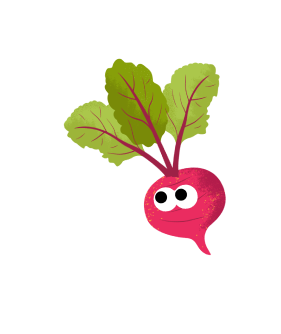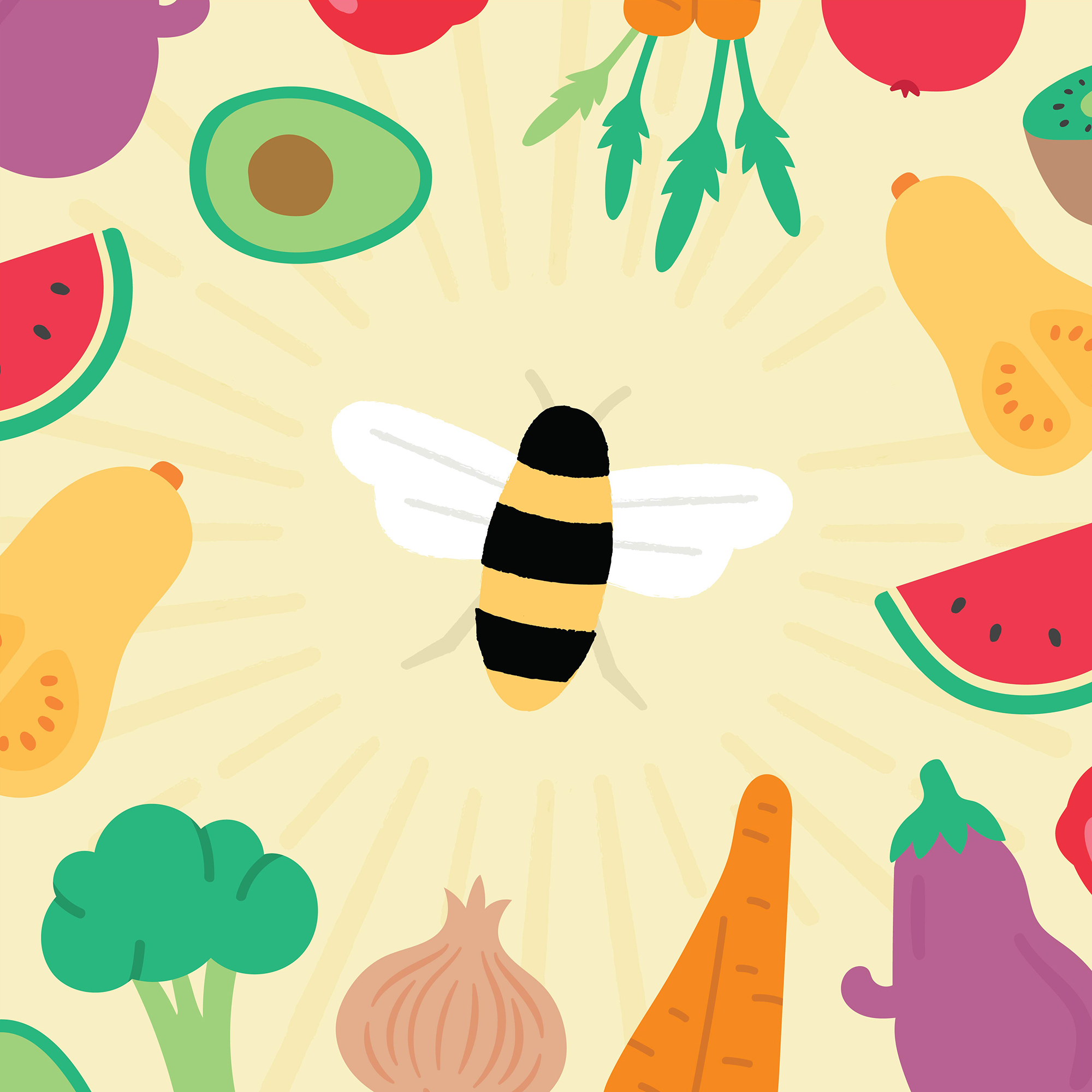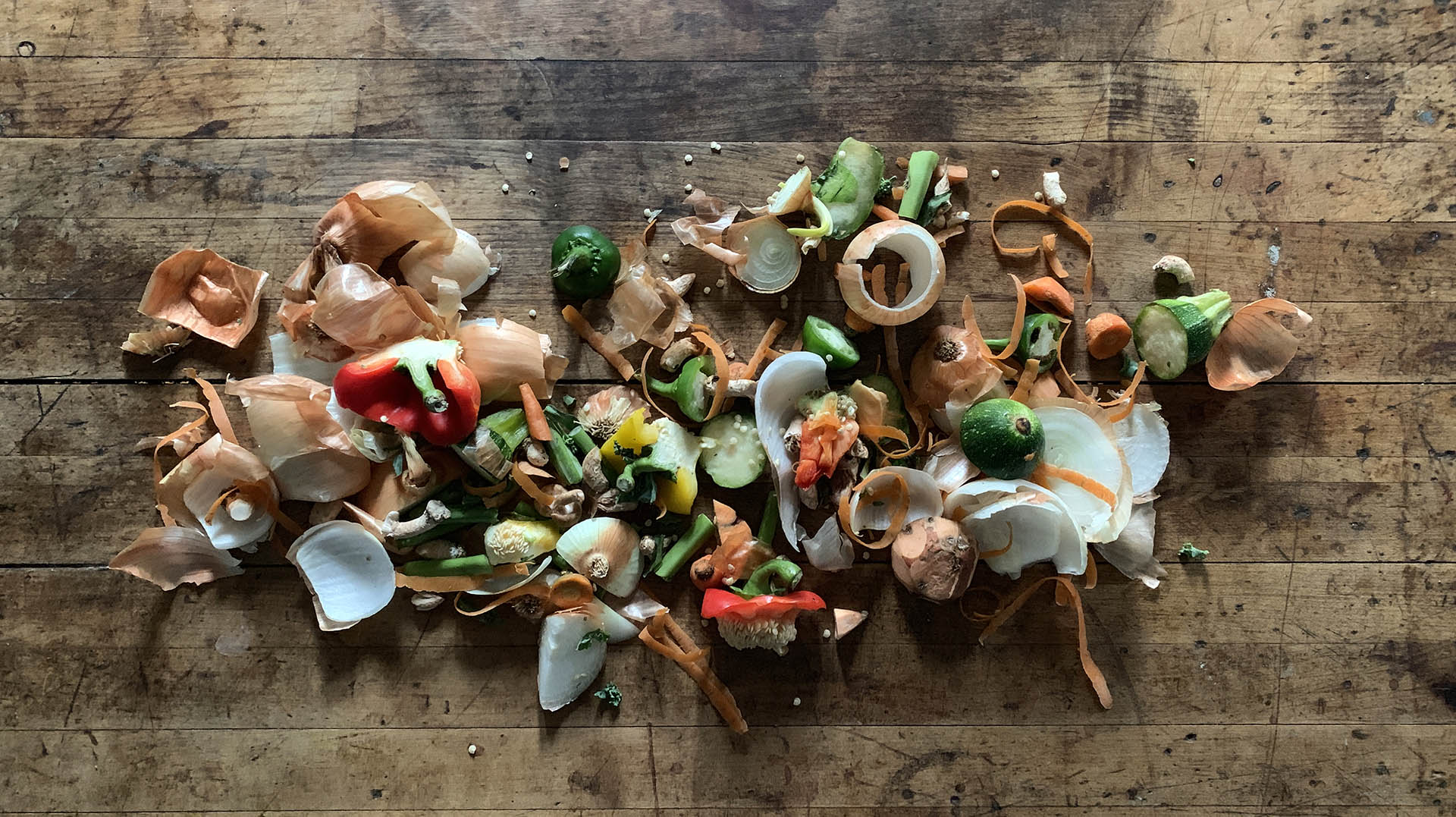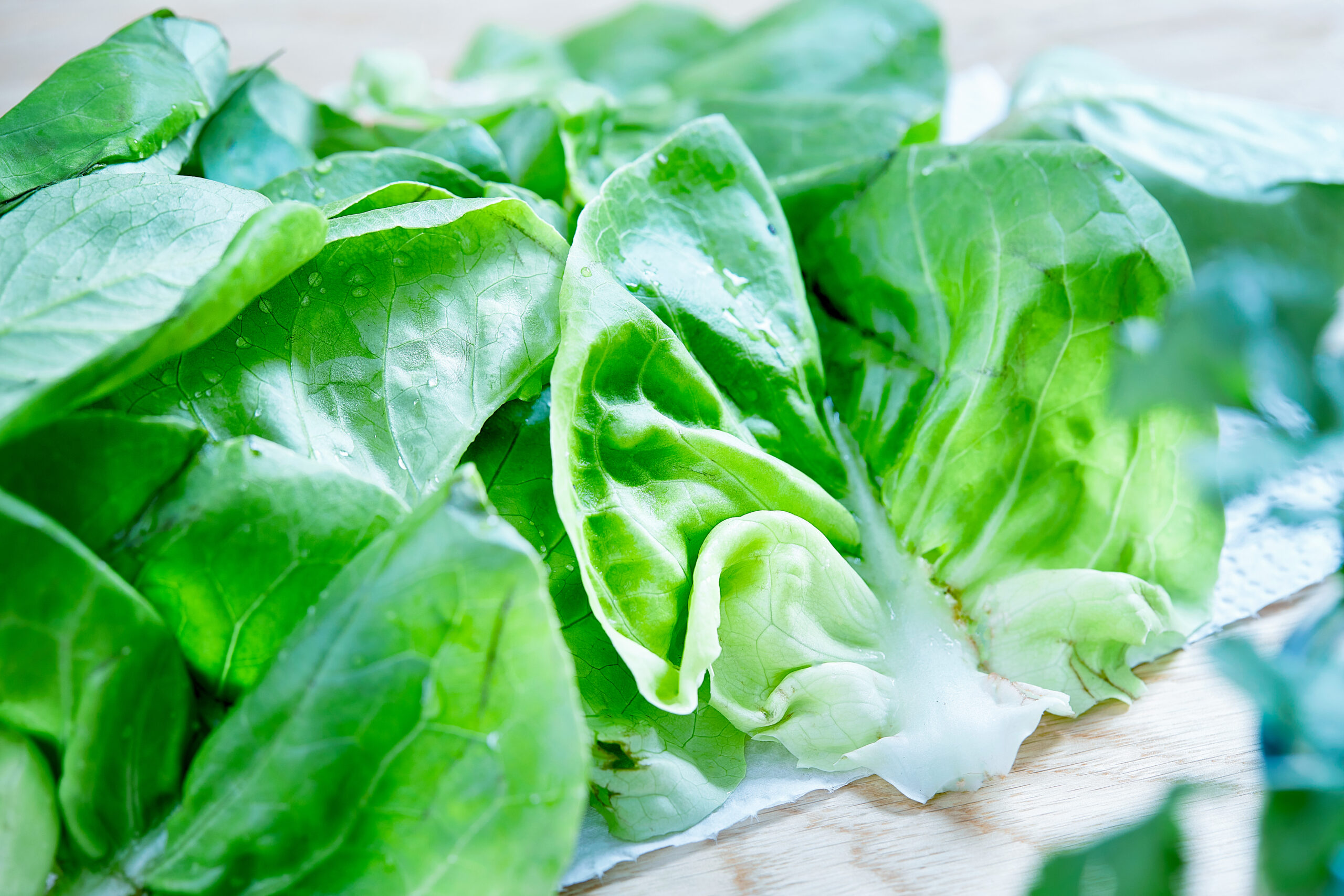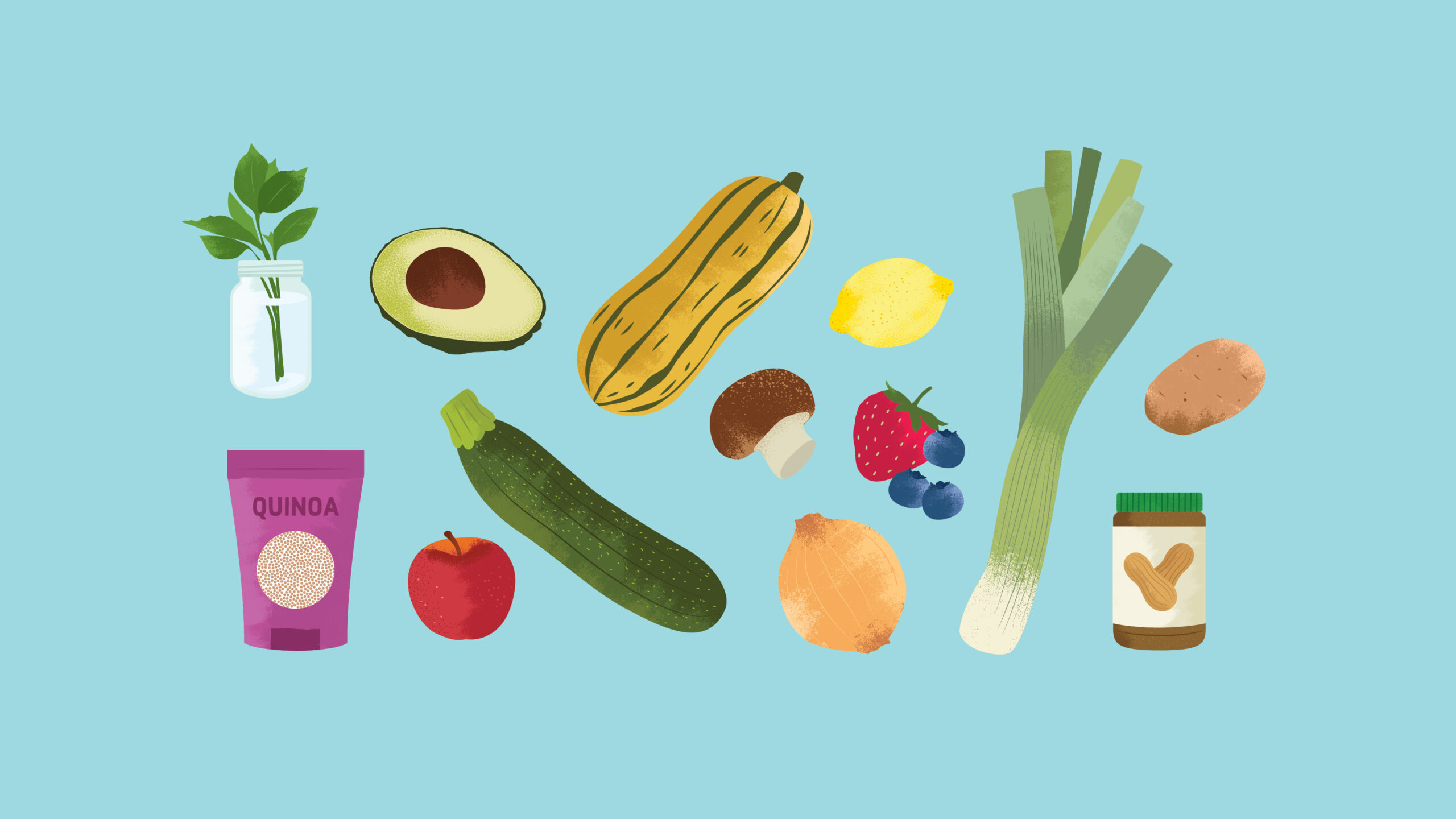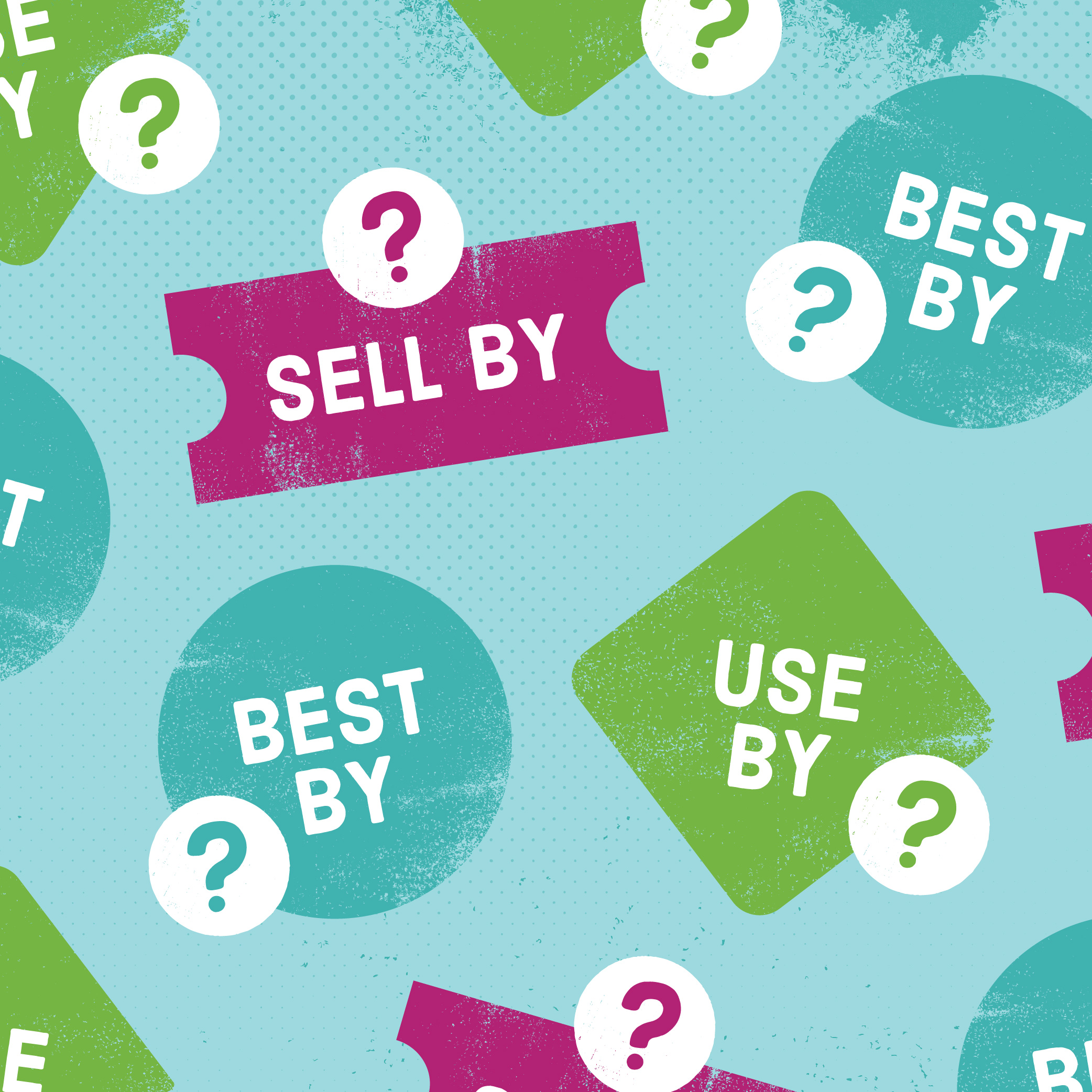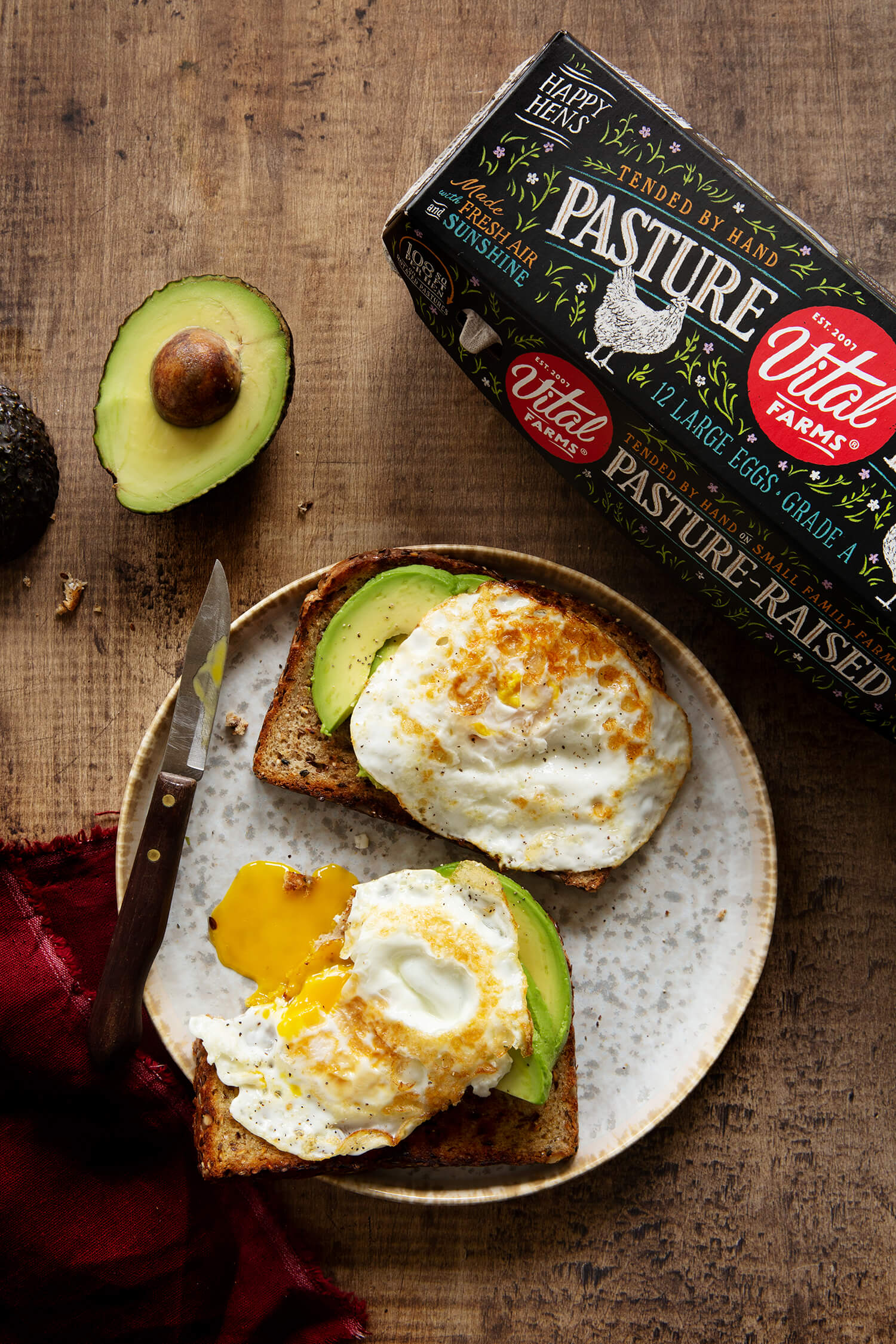Bees are the ultimate unsung heroes of our food system. Pollinators contribute $24 billion to the U.S. agriculture industry and one-third of the foods that we eat in the US are pollinated by bees. Globally, the amount of food pollinated by bees is valued at $577 billion. In honor of Earth Day, we’re sharing 10 ways that you can support pollinators, learn how to help bees, and create a more sustainable food system for everyone.
-
Plant a bee-friendly garden. Creating a welcoming space for bees that’s full of flowers will give these hard-working insects a mini sanctuary in your backyard. When in doubt, go with flowers that are native to where you live!
-
Leave a small dish of water in your garden. Bees get thirsty too. Placing a small dish of water outside can be a huge help for any traveling bees passing through your yard. Be sure to put some twigs or rocks in the dish so the bees have somewhere to land and can get a drink easily and safely.
-
Avoid pesticides in your garden (and on your plate if you can). Large-scale use of pesticides, especially neonicotinoid pesticides that are very toxic to bees, are a big reason why bee populations are struggling right now. The more we can keep them out of our food supply, the more we can ensure that growing food doesn’t harm the very bees we rely on to pollinate so many of our crops.
-
Buy local and raw honey. If your neighborhood grocery store, farmers market, or Imperfect box has some local honey available, seek it out. Not only is this honey much more delicious, but your dollars will also help support the hard-working beekeepers supporting bee populations near you.
-
Plant and protect trees. Trees not only provide bees with more flowers to pollinate, but they also give them much-needed shelter and safety. By making sure your area has enough trees, you can make sure that bees have the food and shelter that they need.
-
Talk to your elected officials about the Pollinator Recovery Act. This piece of legislation would help keep the bees that pollinate our crops safe from toxic chemicals that are threatening their survival today.
-
Become a beekeeper. Sure, it requires investing in some equipment and a cool suit, but if you’re willing to do that and risk a sting or two, you’ll enjoy the best honey of your life and the sweet taste of personally helping our pollinators thrive.
-
Sponsor a hive. If keeping your own bees isn’t appealing or doable where you live, you can always support other beekeepers by sponsoring a hive. This is a great way to put your money where your mouth is and make sure that beekeeping is a viable path for others.
-
Learn more about bees and other pollinators. By getting to know our pollinators, their need,s issues they face, how to help them, you can be the best ally that a bee, bat, or butterfly could ask for!
-
Don’t waste food. It sounds obvious, but one of the best ways to respect our bees is to eat every fruit, veggie, and nut they worked so hard to pollinate.
